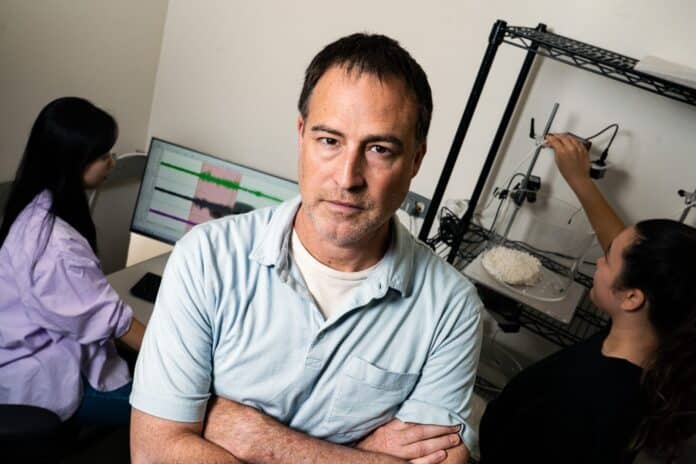Humans have tens of thousands of genes, many of which produce proteins essential to basic bodily functions. The KCNT1 gene, for example, codes for a protein that maintains normal electrical activity in the brain and helps neurons communicate.
But genes don’t always function perfectly.
For many people, a mutation of the KCNT1 gene causes no symptoms. For others, it can lead to dysfunction of neuronal activity causing learning disabilities, difficulty communicating, and a lifetime of treatment-resistant seizures.
Epileptic disorders caused by mutations in KCNT1 affect an estimated 3,000 children in the United States. Associate Professor Matthew Weston and his team with the Fralin Biomedical Research Institute at VTC want to bring that number to zero.
With a grant from Actio Biosciences, Weston is testing whether an Actio KCNT1 inhibitor that modulates potassium levels can reduce seizures. If successful, the inhibitor could offer a treatment for an aggressive form of epilepsy that significantly reduces life expectancy.
“The mutations cause abnormal amounts of potassium to flow through the ion channel,” Weston said. “So the idea is: If you give people a blocker that will limit that potassium flow, could you improve the disease?”
The research is in its early stages, but initial results indicate that the KCNT1 inhibitor reduces seizures in mice.
Given favorable pre-clinical data, Weston said the best-case scenario is that “the drug enters clinical trials and works not just to stop seizures, but maybe even improve some of the other symptoms.”
The inhibitor is on track to enter clinical trials, which would allow patients to receive the investigational drug as early as 2026.
Actio Biosciences is a San Diego-based precision medicine company focused on drug development for genetic and rare diseases.
Weston is a scientific advisor to the KCNT1 Epilepsy Foundation, which seeks to advance research that could lead to cures for KCNT1-related epilepsy.
By Lena Ayuk


